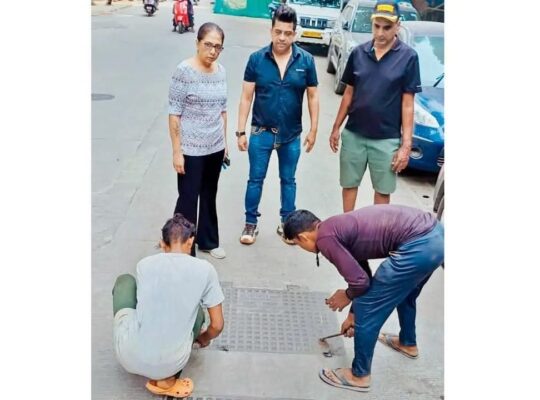In an age where digital convenience is celebrated, cyber scams have quietly emerged as one of the gravest threats to everyday citizens. A recent incident involving a friend brought this danger startlingly close to home.
One afternoon, she received a call from a man claiming to be from her bank. He said her father had requested Rs 5,000 to be transferred into her account. Moments later, she received a message on her phone confirming a credit of Rs 50,000. The caller rang again, apologising for the error and asking her to return Rs 45,000.
Trusting both the message and the man’s polite tone, she complied.
It was only later—after the money was gone—that she realised the message was fake, the transaction never happened, and she had been conned out of Rs 45,000.
This is far from an isolated incident. As online banking becomes the norm, cybercriminals are exploiting not just technological gaps—but, more worryingly, human psychology. Fear, urgency, and misplaced trust are their primary tools and without widespread digital literacy or robust verification habits, even educated individuals fall prey.
Banks and financial institutions have issued advisories against sharing OTPs and bank details, yet scammers have evolved. They no longer rely on stealing passwords; they exploit our instinct to trust.
This editorial is a wake-up call—not just for individuals, but also for institutions. The need for stronger digital safeguards, real-time fraud detection systems, and mass awareness campaigns has never been more urgent.
If we don’t learn to pause, verify, and protect ourselves, no cybersecurity system can shield us from the cost of our own misplaced trust.
To help prevent such scams, here are a few do’s and don’ts of online safety:
Do’s:
1.Always verify unknown calls by contacting your bank directly.
2.Enable transaction alerts and monitor your bank activity regularly.
3.Use official banking apps or websites—not third-party links.
4.Report suspicious activity immediately to your bank and cybercrime authorities.
Don’ts:
1.Never share OTPs, PINs, or passwords with anyone—even if they claim to be from the bank.
2.Don’t trust SMS messages or emails without verifying their source.
3.Avoid making hasty financial decisions under pressure.
4.Don’t return money without checking your actual bank account for credited funds.











